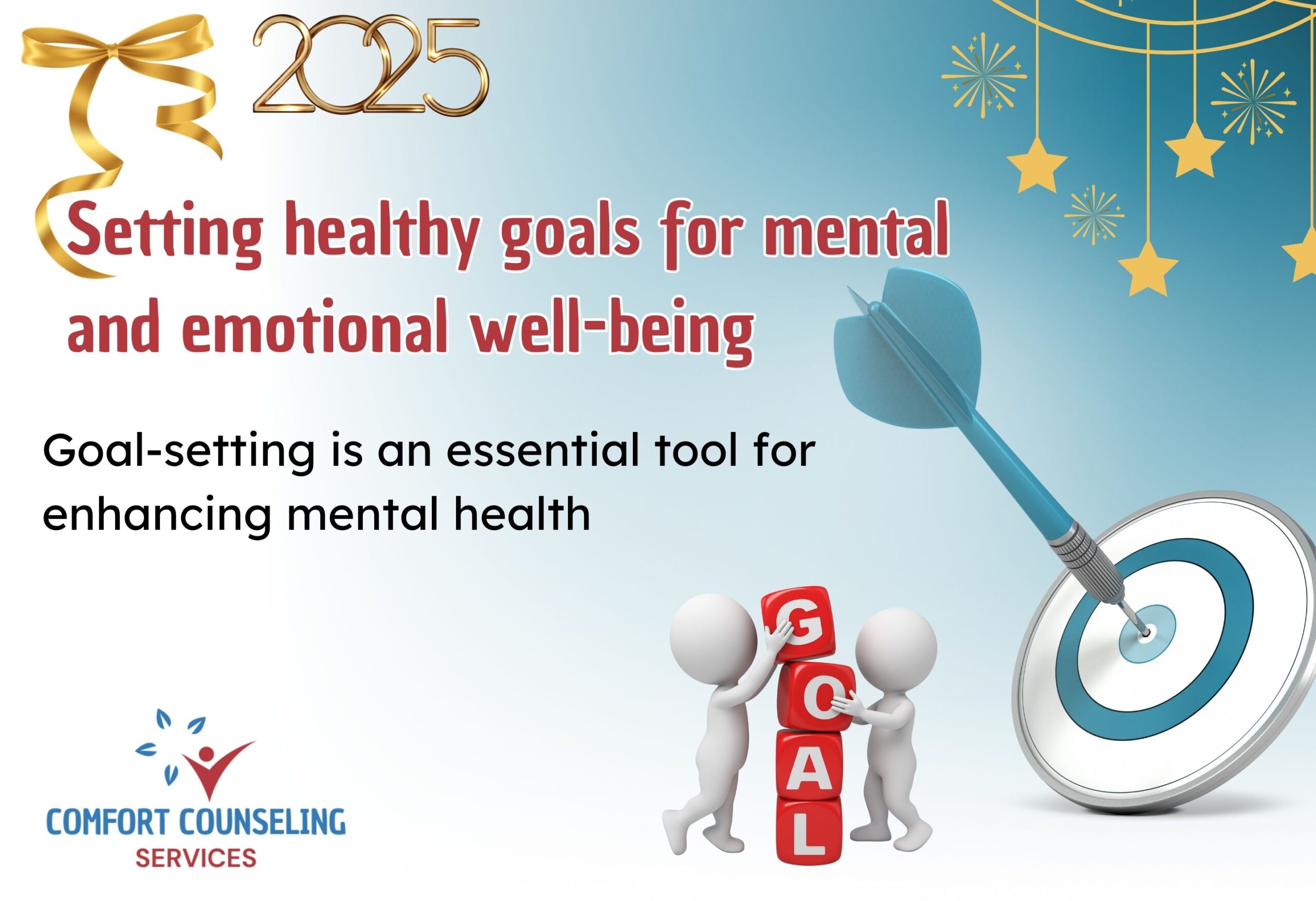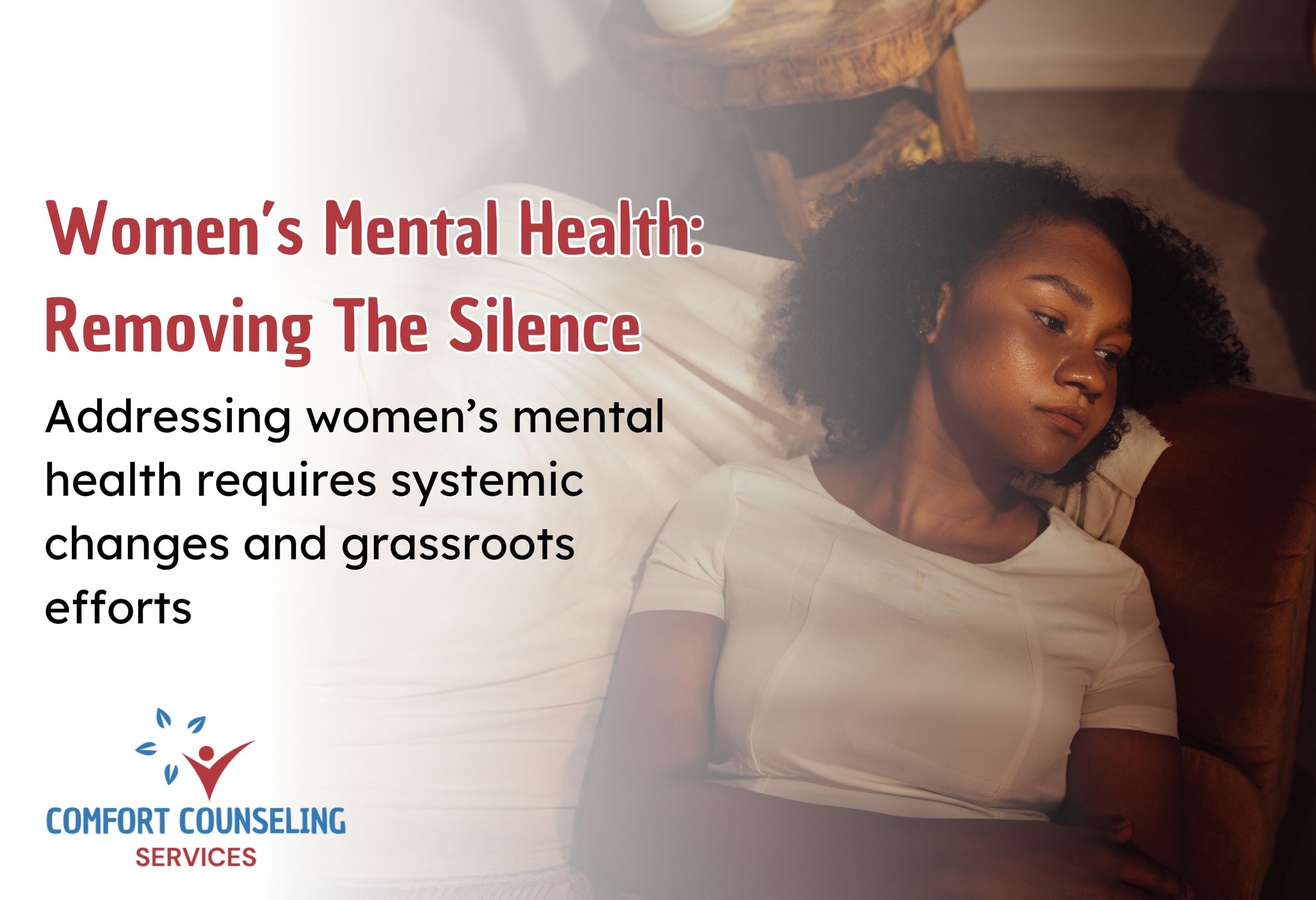As the new year begins, many people set resolutions to improve their lives. However, research shows that nearly 80% of resolutions fail by February (Norcross & Vangarelli, 1989). At Comfort Counseling Services, we believe that the key to a successful year lies in setting realistic, healthy goals that support mental and emotional well-being. In this blog, we explore effective strategies for goal-setting and provide evidence-based advice to help you thrive throughout the year.
The importance of goal-setting for mental health
Goal-setting is an essential tool for enhancing mental health. According to Locke and Latham’s Goal-Setting Theory (1990), setting specific, measurable, achievable, relevant, and time-bound (SMART) goals boosts motivation and improves performance. This approach helps individuals focus their efforts, maintain accountability, and experience a sense of achievement.
Psychologically, having clear goals can reduce stress and anxiety by providing direction and purpose. The process also fosters self-discipline, which is linked to better emotional regulation and resilience (Duckworth & Gross, 2014).
Strategies for setting healthy goals
- Start small and build momentum
Unrealistically ambitious goals can lead to frustration and burnout. Instead, start with manageable objectives. For example, instead of resolving to “exercise every day,” aim for “20 minutes of physical activity three times a week.” Gradual progress builds confidence and long-term success. - Prioritize mental health goals
Incorporate goals that directly enhance mental and emotional well-being, such as practicing mindfulness, journaling, or seeking professional counseling. Studies have shown that mindfulness practices can reduce symptoms of anxiety and depression (Hofmann et al., 2010). - Use positive reinforcement
Celebrate small wins to stay motivated. Positive reinforcement, such as rewarding yourself for reaching milestones, can boost dopamine levels and encourage persistence (Deci & Ryan, 1985). - Be flexible and adaptable
Life is unpredictable, so it’s important to adjust your goals when necessary. Flexibility prevents feelings of failure and promotes problem-solving skills when challenges arise.
Practical tips for success
- Write your goals down: Studies indicate that written goals are 42% more likely to be achieved (Matthews, 2015). Keep your goals visible to remind yourself of your priorities.
- Seek support: Share your goals with a trusted friend, family member, or counselor. Accountability and encouragement can significantly impact your success.
- Practice self-compassion: If you fall short of your goals, avoid harsh self-criticism. Instead, view setbacks as opportunities to learn and grow.
How Comfort Counseling Services can help
At Comfort Counseling Services, we offer tailored counseling sessions to support your journey toward achieving your goals. Our experienced counselors provide:
- Individual counseling: Personalized strategies for overcoming obstacles and building resilience.
- Workshops on goal-setting: Practical techniques for effective planning and follow-through.
- Mental health assessments: Identifying areas for growth and creating actionable plans for improvement.
Conclusion
This January, prioritize your mental and emotional well-being by setting realistic, healthy goals. By implementing evidence-based strategies and seeking support when needed, you can make 2025 a transformative year. Comfort Counseling Services is here to guide you every step of the way.
For more information or to book an appointment, visit our website here or contact us directly. Let’s make 2025 a year of growth and fulfillment together!
References
- Deci, E. L., & Ryan, R. M. (1985). Intrinsic Motivation and Self-Determination in Human Behavior. Springer.
- Duckworth, A. L., & Gross, J. J. (2014). Self-control and emotional regulation. Current Directions in Psychological Science, 23(5), 319–325.
- Hofmann, S. G., Sawyer, A. T., Witt, A. A., & Oh, D. (2010). The effect of mindfulness-based therapy on anxiety and depression: A meta-analytic review. Journal of Consulting and Clinical Psychology, 78(2), 169–183.
- Locke, E. A., & Latham, G. P. (1990). A Theory of Goal Setting and Task Performance. Prentice Hall.
- Matthews, G. (2015). Written goals are more likely to be achieved. Psychology Today.
Norcross, J. C., & Vangarelli, D. J. (1989). The resolution solution: Longitudinal examination of New Year’s change attempts. Journal of Substance Abuse, 1(2), 127–134.



